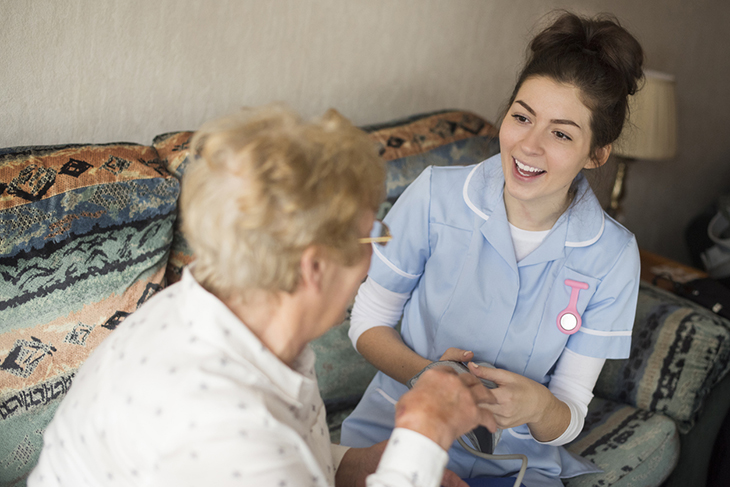I’m working to improve experiences of care, will you join me?

This week (Monday 20 March to Friday 24 March) provides the perfect opportunity to place a spotlight on experiences of care. Patient, family, carer and staff experiences are inextricably linked and during this week NHS England will be sharing great examples from across the country on how teams are working to improve experiences in these areas so that together we can continue on our journey of improvement.
There’s a book by Simon Sinek called ‘Start with Why’ and it got me thinking. Why is the experience of care or the experience of being part of the team delivering care so important? Quite simply, positive, good experiences raise our endorphins.
The staff nurse in outpatients who chats animatedly to the patient waiting to go in for their review appointment with the Consultant may lift their spirits putting them at ease, or in more difficult situations, the porter who gently places a hand on the patient’s shoulder as he wheels them off for a scan, sensing the anxiety they are holding within, may be a powerful action at a worrying time. Or the ward house keeper who has been off for surgery being visited by colleagues at home, highlighting how much she’s valued. All of these thoughtful interventions create sparks of connection, positive experiences.
Last week was my fifth Chief Nursing Officer for England’s Summit and one of the key themes was personalised care. At a previous Summit, I showed this short clip from Brene Brown’s work that brings the power of empathy and connection to life beautifully. We know that patient experience is so important and when we articulate why experience matters we can excite others to work with us to improve experiences too.
When we create great patient, family and carer experience through the design and delivery of services and care, we increase engagement in care which impacts on health outcomes. How much patients and staff are engaged with the experiences that patients themselves, families and carers have can result in us either seeking out more information and taking control, or taking a more passive role in care.
Focusing on connecting and building relationships between staff groups, and between staff and patients increases feelings of happiness; the emotional and physical benefits of either receiving or working within a great service make us feel good or better, even in the most distressing of times.
We are also much more likely to advocate about the care, services or employers, if we have had a positive experience of care, whether this is about actual care received or by working in a care environment. Having a compassionate as well as clinically effective dentist for example will mean we are more likely to continue to attend appointments, as well as recommend the dental practice to others.
When we focus on creating great staff experiences we raise morale, grow the team, increase retention, build resilience and ultimately provide better care to the public. By role modelling the importance of delivering positive experiences we build a solid foundation with our students across all disciplines who are just starting their career pathways so that a lifelong commitment to improving experience is nurtured.
Across most communities, we all live complicated lives and creating a positive experience, either of care interactions or in the work environment has a ripple effect into other aspects of our lives.
So in the week ahead there’ll be plenty of online activities and physical events to spread ideas about how people are working to improve experiences of care for and with patients, families, carers and staff, everyday across all our services.
I encourage you all to share how you are improving experiences of care across the health and care sectors. Further information about the week is available on the ‘we communities’ website and don’t forget to join in the conversation on twitter, using the hashtag #ExpofCare so we can all inspire each other.
So my challenge to you, I’m working to improve experiences of care, will you join me?
